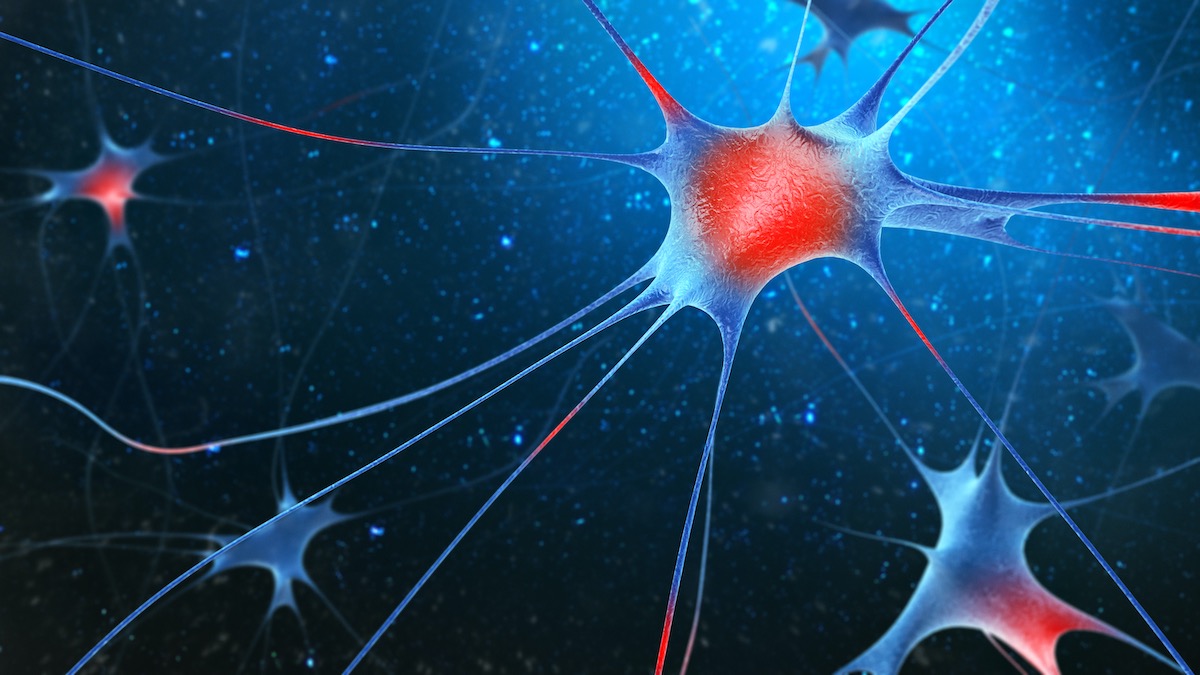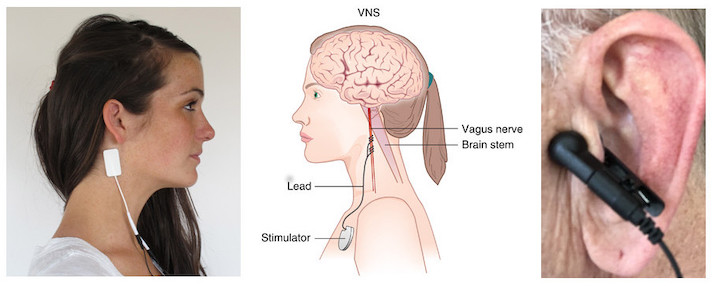Note: The CES Ultra does not make claims as to alleviation of pain. However this article shows how inflammation and symptoms of arthritis may be reduced by Vagus nerve stimulation. The CES Ultra targets the Vagus nerve.
Inflammatory responses play a central role in the development and persistence of many diseases and can lead to debilitating chronic pain. In many cases, inflammation is your body’s response to stress. Therefore, reducing fight-or-flight responses in the nervous system and lowering biological markers for stress can also reduce inflammation.
Typically, doctors prescribe medications to combat inflammation. However, there is continual growing evidence showing that another way to combat inflammation is by engaging the Vagus nerve and improving vagal tone. This can be achieved through daily habits such as yoga and meditation — or in more extreme cases of inflammation, such as rheumatoid arthritis (RA) — by using an implanted device for Vagus nerve stimulation (VNS).
The Vagus nerve is known as the wandering nerve because it has multiple branches that diverge from two thick stems rooted in the cerebellum and brainstem that wander to the lowest viscera of your abdomen touching your heart and most major organs along the way. Vagus means wandering in Latin. The words vagabond, vague, and vagrant are all derived from the same Latin root.
In 1921, a German physiologist named Otto Loewi discovered that stimulating the Vagus nerve caused a reduction in heart rate by triggering the release of a substance he coined Vagusstoff (German for Vagus Substance). The Vagus substance was later identified as acetylcholine and became the first neurotransmitter ever identified by scientists.
Vagusstoff (acetylcholine) is like a tranquilizer that you can self-administer simply by taking a few deep breaths with long exhales. Consciously tapping into the power of your Vagus nerve can create a state of inner-calm while taming your inflammation reflex.
The Vagus nerve is the prime component of the parasympathetic nervous system which regulates the rest-and-digest or tend-and-befriend responses. On the flip side, to maintain homeostasis, the sympathetic nervous system drives the fight-or-flight response.
Healthy Vagal Tone Is Part of a Feedback Loop Linked to Positive Emotions
Healthy vagal tone is indicated by a slight increase of heart rate when you inhale, and a decrease of heart rate when you exhale. Deep diaphragmatic breathing—with a long, slow exhale—is key to stimulating the Vagus nerve and slowing heart rate and blood pressure, especially in times of performance anxiety.
A higher vagal tone index is linked to physical and psychological well-being. Conversely, a low vagal tone index is associated with inflammation, depression, negative moods, loneliness, heart attacks, and stroke.
Discover the benefits of Vagus nerve stimulation. They describe a costly and intrusive procedure involving an implant. Cranial Electrotherapy Stimulation (CES), specifically the CES Ultra device, can achieve the same result at fraction of the cost and in a noninvasive manner.
Rheumatoid Arthritis (RA) and Vagus Nerve Stimulation
Recently, an international team of researchers from Amsterdam and the United States conducted a clinical trial which demonstrates that stimulating the Vagus nerve with a small implanted device significantly reduced inflammation and improved outcomes for patients with rheumatoid arthritis by inhibiting cytokine production.
RA is a chronic inflammatory disease that affects approximately 1.3 million people in the United States and costs tens of billions of dollars to treat each year, according to researchers.

The neuroscientists and immunology experts involved in this study used state-of-the-art technology to map the neural circuitry that regulates inflammation. In one circuit—termed the inflammatory reflex—action potentials transmitted in the Vagus nerve inhibit the production of pro-inflammatory cytokines.
This was the first human study designed to reduce symptoms of rheumatoid arthritis by stimulating the Vagus nerve with a small implanted device which triggered a chain reaction that reduced cytokine levels and inflammation. Although this study focused on rheumatoid arthritis, the trial’s results may have implications for patients suffering from other inflammatory diseases, including Parkinson’s, Crohn’s, and Alzheimer’s.
These findings suggest a new approach to fighting diseases that are currently treated with relatively expensive drugs that have a host of side effects. VNS gives healthcare providers a potentially more effective way to improve the lives of people suffering from chronic inflammatory diseases.
Conclusion: Vagus Nerve Stimulation Is a Potent Drug-Free Alternative for Treating Inflammation
Co-author Kevin J. Tracey, president and CEO of the Feinstein Institute for Medical Research and the person who discovered the inflammatory reflex, said, – This is a real breakthrough in our ability to help people suffering from inflammatory diseases. While we’ve previously studied animal models of inflammation, until now we had no proof that electrical stimulation of the Vagus nerve can indeed inhibit cytokine production and reduce disease severity in humans. I believe this study will change the way we see modern medicine, helping us understand that our nerves can, with a little help, make the drugs that we need to help our body heal itself.
CES has been engaging Vagus nerve stimulation for decades, through the use of ear clips to stimulate the nerve endings in the ears. Positive results may be gained by applying low amplitude, extremely low frequency (ELF) electric currents, through the Vagus nerve system. The CES Ultra cranial electrotherapy stimulator device incorporates the use of ELF applied by ear clip attachments or gelled electrodes, to stimulate the Vagus nerve.

Rated 4.8/5 based on 18 user reviews
…CES has also been shown to reduce muscular tension. I often recommend it to patients who have been injured in automobile accidents, as its gentle and relaxing effects help them to overcome not only the emotional impact of the accident, but reduce their perception of pain as well.
– Psychologist, Canada
Citations
- Psychology Today – Vagus Nerve Stimulation Dramatically Reduces Inflammation (original publication)
- CES Ultra – Vagus Nerve Stimulation And Inflammation
- CES Ultra – What is CES?

